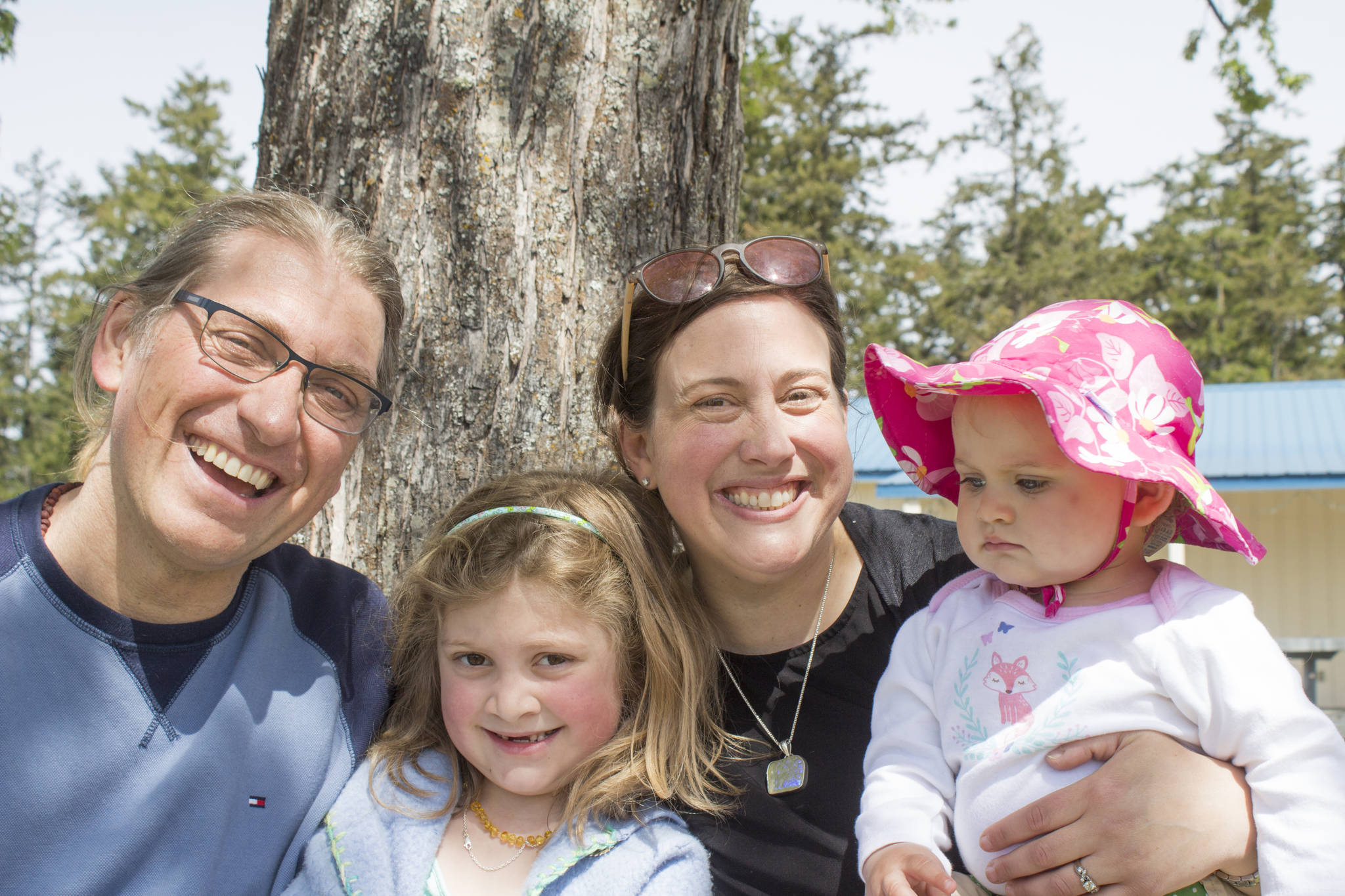To Linnea Anderson, one of the biggest surprises of motherhood was realizing that when either her young children were hurt or crying, she herself felt physical pain.
Parenthood, Anderson added, is about survival, trying to get through each day hoping the children will be safe in their beds at the end of it.
“You will never know fear until you become a parent,” she said.
Anderson is San Juan County’s juvenile court administrator, and as a working mother of two children under the age of 10, she noted that mom guilt is real.
“I always worry I am not spending enough time with my kids,” she said. However, she added, Anderson knows her husband is taking good care of them when she can’t be there, and she attributes much of her success both as a parent and in her career, to his support.
“He is the most kind and thoughtful man,” Anderson said smiling. Support, she says, is key to motherhood, given the size of the job. Parents whom she has met along the way have become her go-to friends when she needs advice or even a good listener when she feels she just can’t make it through the day.
“For new moms, especially, participating in a baby group or Lapsit at the family resource center can be so helpful,” she said. Partner up with fellow parents and take the pressure off, Anderson added.
Through her work with at-risk children, she has seen some of the biggest parental fears come to fruition in other people’s kids. Her 20s were spent with the most challenging youth in Washington state. Her work began during a class at Evergreen State College in Olympia. The program used a principle called participation research to educate adolescents imprisoned for a variety of crimes, including involvement with violent gangs.
Participation research operates on the premise that teachers and students are partners in education, Anderson said. The teacher is not the keeper of knowledge but more of a moderator and guide through the child’s learning.
“We worked with each youth to find out who they were,” she explained, adding that a high percentage of the juveniles were minorities, isolated from standard education not only because these youth were in an institution but because even before being detained, standard education did not include the history of non-white students. The primary focus became cultural studies, which Anderson said helped learn more about their past, and engaged them in the learning process.
Anderson’s professor retired at the same time she graduated, and she became the executive director of the program. One of her first moves was to promote the assistant director, making him her equal. The organization began designing activities for the students. One activity was a game where each teen was given an empty balloon. The participant blew up the balloon, then let the air out, raced to where the balloon had fallen, blew it up, chased it again until they reached the finish line. The kids loved the game, Anderson said. They laughed, were silly and playful and acted like children for probably the first time in their lives. Parents at these events frequently told her it was the first time they saw their child smile let alone laugh, she said.
“There is something powerful in each of us,” Anderson said. “Each of us has a gift. We just have to figure out what that is.”
This is still her goal today, helping at-risk juveniles figure out who they are and make better decisions.
Anderson first came to San Juan Island because of a meeting with former juvenile court administrator Tom Kearney when he called her office looking for a local boy who had been placed in a state facility. Years later, Kearney called her again to let her know there was a position available in his office. She applied and got the job.
“The San Juans are such a special place,” she said, “I have never experienced a community that cares so much about its young people.”
For parents concerned their child might be exhibiting at-risk behavior, Anderson encourages them to come to her office. The services her office provides offer are free and confidential, and the staff will refrain from judgment.
Anderson still operates on the participation research model. She said that the first time a struggling family comes in, staff will warn them: “We are going to throw a bunch of bad ideas out there, but if something begins to resonate with you, let us know.”
She continued, explaining that what works for one family will not work for another and that the families are the experts. They know who the child is, what they want and need.
Anderson also encourages parents to breathe and be kind to themselves.
“It’s hard work. Being a parent is a difficult path,” she said. “I’m not a perfect mom, I don’t have all the answers. But I am willing to join with other parents to try to figure it out.”




